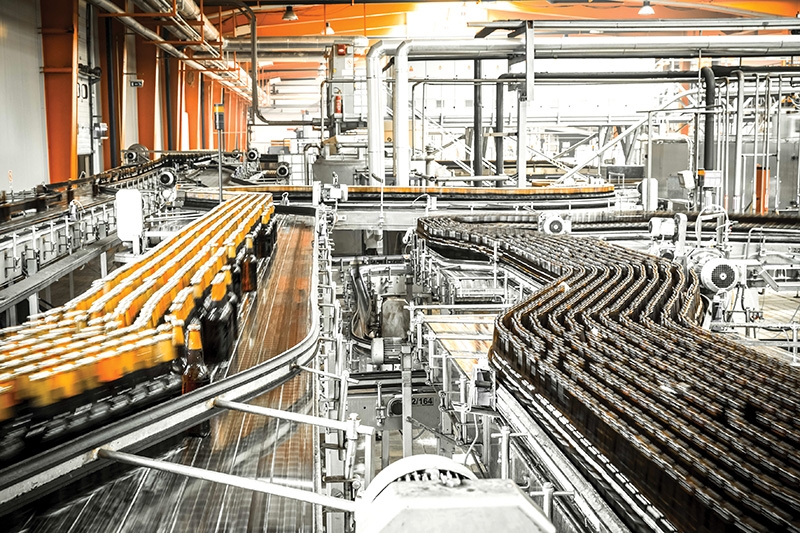Manufacturers jostle with reduced capacity
 |
| Illustration photo |
Since mid-July, pharma manufacturer Davipharm has been utilising a stay-at-work model so that it can continue supplying medicines to patients and protect its team and business in Vietnam.
Most of the medicinal products manufactured in the Binh Duong factory are for the local market, therefore the negative impacts of the pandemic are particularly being felt in local sales numbers due to lack of access to the hospitals and patients as well as disruption in distribution, according to Magdalena Krakowiak, head of Public Affairs and CSR at Polish group Adamed Vietnam, which owns Davipharm.
But as the pandemic is considered as a force majeure and its unforeseeable circumstances prevent the company from fulfilling some contracts, compensation for breaching the terms of agreement do not apply. “It works the other way round too. If our suppliers or clients cancel the orders or experience a delay, we can’t demand the indemnity either. Nevertheless, the consequences of all those cases are severe for the company’s operations,” Krakowiak said.
There is also a heavy impact from the backlog in supply chain issues. The active pharmaceutical ingredients’ sources must be diversifying and purchasing departments are challenged by finding alternative sources providing more flexibility. However, the registration regulations are not ready for the pandemic circumstances, not allowing companies to smoothly switch sources.
On the other hand, Krakowiak noted that the company has not experienced the disruption in the import of Adamed’s medicines yet. However, this is due to the higher stocks built up before the pandemic started resulting from legal issues, namely from backlogs in the extension of marketing authorisation for medicines.
Meanwhile, the Sapporo brewery in the southern province of Long An is implementing a similar stay-at-work solution under the direction of the local authorities. Katsuhiko Usui, general director of Sapporo Vietnam, told VIR, “We arrange for employees to stay at the brewery so that production can be maintained normally. Long An Brewery is an important base for Sapporo Group, not only serving the domestic market but also meeting the needs of exporting products to dozens of countries around the world. Therefore, ensuring the safety of the brewery is one of our top priorities.”
From June, the Sapporo office in Ho Chi Minh City has arranged a work-from-home system for employees. In 2020 the company set up a system for internal working processes so that staff could operate remotely.
Binh Duong, Dong Nai, and Long An are the country’s largest recipients of accumulated foreign direct investment but the former has recorded more than 100,000 COVID-19 cases, while the latter pair are also dealing with a spike in infections.
Data from the General Statistics Office reveals that the index of industrial production in these three provinces contracted by 12.6, 13.3, and 20.9 per cent on-year, respectively, in August. The figure for Ho Chi Minh City shrank 49.2 per cent on-year.
As manufacturing hubs become the largest pandemic hotspots, it has also dragged down manufacturing output. The Vietnam Manufacturing Purchasing Managers’ Index (PMI) fell to 40.2 last month, down from 45.1 in July and signalling the worst deterioration in the health of the manufacturing sector since April 2020.
Andrew Harker, economics director at IHS Markit said, “Vietnamese manufacturers are facing a near-impossible task at present as the restrictions put in place to try and contain the spread of the COVID-19 outbreaks in the country constrain their ability to produce goods. Some are closed outright, with others operating at reduced capacity and with scaled-down staff members.”
“Manufacturers using a stay-at-work model are still facing severe delays in receiving inputs, with reduced capacity at ports often causing delivery delays,” Harker added. “As a result of all this, manufacturing output has declined and businesses also revised down their expectations as the prospect of an extended period of restrictions becomes more likely.”
Krakowiak of Adamed Vietnam also said, “The management board of Adamed and Davipharm is carefully observing the situation in the country. We hope for the crisis to be over soon and the business and lives to be back to normal but it is contingent on adequate delivery of vaccines.”
Along with vaccine donations from Poland, in the coming weeks more than eight tonnes of medical equipment and personal protective equipment will be shipped from this country to Vietnam.
“If Vietnam can deliver two jabs to most of its population by April 2022, we would be reassured that business operations can continue. Regardless, Adamed plans investment in Vietnam as a long-term initiative,” Krakowiak said.
What the stars mean:
★ Poor ★ ★ Promising ★★★ Good ★★★★ Very good ★★★★★ Exceptional
Related Contents
Latest News
More News
- Foreign leaders extend congratulations to Party General Secretary To Lam (January 25, 2026 | 10:01)
- 14th National Party Congress wraps up with success (January 25, 2026 | 09:49)
- Congratulations from VFF Central Committee's int’l partners to 14th National Party Congress (January 25, 2026 | 09:46)
- 14th Party Central Committee unanimously elects To Lam as General Secretary (January 23, 2026 | 16:22)
- Worldwide congratulations underscore confidence in Vietnam’s 14th Party Congress (January 23, 2026 | 09:02)
- Political parties, organisations, int’l friends send congratulations to 14th National Party Congress (January 22, 2026 | 09:33)
- Press release on second working day of 14th National Party Congress (January 22, 2026 | 09:19)
- 14th National Party Congress: Japanese media highlight Vietnam’s growth targets (January 21, 2026 | 09:46)
- 14th National Party Congress: Driving force for Vietnam to continue renewal, innovation, breakthroughs (January 21, 2026 | 09:42)
- Vietnam remains spiritual support for progressive forces: Colombian party leader (January 21, 2026 | 08:00)

 Tag:
Tag:



















 Mobile Version
Mobile Version